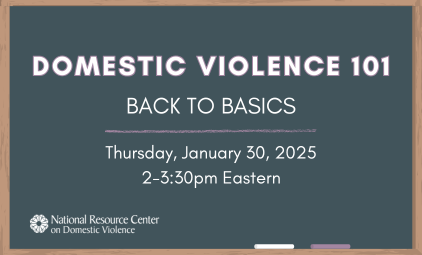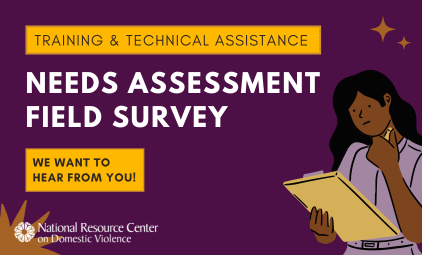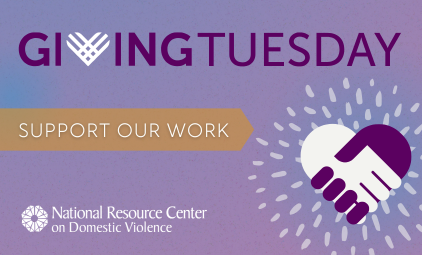![]() As veterans return from war zones in greater numbers, the NRCDV has seen an increase in requests from advocates who struggle to address the added complications that wartime experiences can bring to intimate relationships. Coming across the emotional journey of veteran Scott Ostrom through a striking photo blog, staff at the NRCDV felt moved to use this story to restart the conversation about Post Traumatic Stress Disorder (PTSD) and Traumatic Brain Injury (TBI) among war veterans, and specifically highlight how this impacts the work of domestic violence advocates. Returning home to the U.S. with a severe case of post-traumatic stress disorder, 27 year-old Scott “has struggled with daily life, from finding and keeping employment to maintaining healthy relationships.” PTSD and TBI are not new issues to domestic violence advocates, especially as these relate to victims and survivors, who are at great risk for psychological trauma and head injuries. What has been emerging is an increased understanding of the implications to the domestic violence field of PTSD and TBI among veterans who return home to their partners and families. Scott’s story is being referenced here not as an example of domestic violence but rather as a powerful illustration of the toll PTSD can take on one’s life and relationships.
As veterans return from war zones in greater numbers, the NRCDV has seen an increase in requests from advocates who struggle to address the added complications that wartime experiences can bring to intimate relationships. Coming across the emotional journey of veteran Scott Ostrom through a striking photo blog, staff at the NRCDV felt moved to use this story to restart the conversation about Post Traumatic Stress Disorder (PTSD) and Traumatic Brain Injury (TBI) among war veterans, and specifically highlight how this impacts the work of domestic violence advocates. Returning home to the U.S. with a severe case of post-traumatic stress disorder, 27 year-old Scott “has struggled with daily life, from finding and keeping employment to maintaining healthy relationships.” PTSD and TBI are not new issues to domestic violence advocates, especially as these relate to victims and survivors, who are at great risk for psychological trauma and head injuries. What has been emerging is an increased understanding of the implications to the domestic violence field of PTSD and TBI among veterans who return home to their partners and families. Scott’s story is being referenced here not as an example of domestic violence but rather as a powerful illustration of the toll PTSD can take on one’s life and relationships.
“Sometimes I get into fights. It’s not a talking thing for me. I handle it like a Marine, like it’s a combat situation. (…) Being diagnosed with PTSD is an interesting thing. … It means I have nightmares every night. It means I’m hyper-vigilant — means I’m weird about noises in the middle of the night and lock my doors.” Brian Scott Ostrom
Information, Resources & Collaboration Models
As increasing numbers of military and civilian personnel return home from Iraq and Afghanistan, domestic violence has been increasingly attributed to PTSD and TBI among veterans who abuse their partners. It has become critical for advocates and practitioners to understand how domestic violence, PTSD and TBI can co-occur as well as be distinguished as separate issues. For example, a person suffering from PTSD or brain injury is not discriminating on whom the violence is directed at and may not be able to decide only to use violence against his or her intimate partner (Deborah D. Tucker[1]). To effectively hold domestic violence perpetrators accountable for their behavior and properly address safety and support for victims, interventions must be designed to address the root of the problem – be it trauma related PTSD or TBI, and/or deliberate behavior to exert power and control over one’s intimate partner. As expert advocate Deborah Tucker explains “it will do no good to send an untreated, brain-injured former soldier to a battering intervention and prevention program without addressing the underlying cause” of his or her abusive behavior. By the same token, it is also essential that domestic violence not be attributed inappropriately to PTSD or TBI. Although violent behavior can occur as a result of military trauma, not all acts of violence against intimate partners are associated with PTSD or TBI, even among veterans of wars. That being said, experts have been providing critical guidance for victims, advocates and batterer intervention programs in identifying the source of the abusive behavior and designing the most appropriate interventions for each scenario.
Information and resources are available to help shed light on the nexus between domestic violence, PTSD and TBI. The NRCDV has developed two special collections, “The Intersection of Domestic Violence and the Military: Working across disciplines” and “Traumatic Brain Injury and Domestic Violence: Understanding the Intersections,” which offer articles, tools, presentations, and other resources to help advocates, service providers and the military understand the intersection between domestic violence, PTSD and TBI. The prevalence of TBI and PTSD among veterans is examined in these collections, with special attention to the implications for the domestic violence field. Best practices for distinguishing TBI, PTSD, and domestic violence are identified, as well as strategies for effective interventions to best address these challenging issues when they co-occur. The collections also provide information about existing collaboration models between anti-violence organizations, service providers and the military. The Battered Women’s Justice Project’s Military Advocacy Resource Network is one example of a promising collaboration providing technical assistance, resources, and support for advocates, military and civilian, who serve military and veteran families and work with victims of domestic violence/sexual assault/stalking and dating violence perpetrated by military personnel or veterans. A wealth of resources related to the military’s response to domestic violence can also be found on the website of the National Center on Domestic and Sexual Violence.
Help Is Available
The National Domestic Violence Hotline is available 24/7 for victims (military and civilian alike) and anyone calling on their behalf to provide crisis intervention, safety planning, information and referrals to agencies in all 50 states, Puerto Rico and the U.S. Virgin Islands. Calls are free and confidential. Services are also provided 24 hours a day (by phone and online) by Military OneSource, which is a free service provided by the Department of Defense (DoD) to service members and their families. Military OneSource helps with a broad range of concerns including developing healthy relationships. The DoD offers programs to assist family members who are victims of domestic violence. These programs include the Family Advocacy Program (FAP), the Victim Advocacy Program, and the Transitional Compensation Program. DoD also provides reporting options for victims of domestic abuse. These programs are available at military installations supporting families worldwide. Information about additional resources can be found through NRCDV/VAWnet’s special collections.
Whether civilians or those in the military commit more violence against family members is frequently debated. (…) What we do know is the most effective predictor of the use of violence in intimate relationships is the extent to which individuals have attitudes and beliefs that give rise to a sense of entitlement to control those around them.” Deborah Tucker
[1] DOMESTIC VIOLENCE, PTSD AND BRAIN INJURY: MILITARY AND CIVILIAN CHALLENGES (Part 1, and Part 2), Deborah D. Tucker, Michigan Family Law Journal (volume 39, numbers 4 and 5), State Bar of Michigan, Lansing, MI: April 2009.
What approaches have you used in addressing the complexity that combat-related PTSD or TBI bring to domestic violence cases? Share your experiences!


















